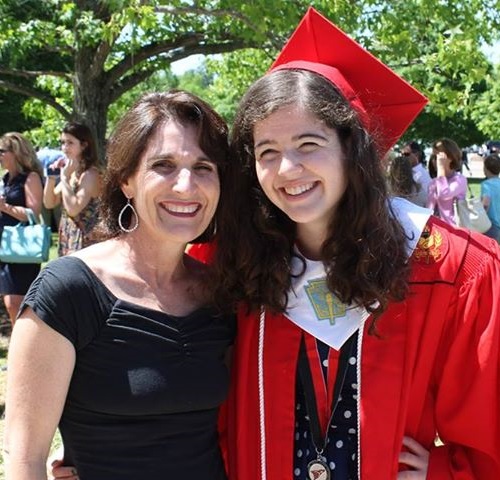No shortcuts to good education
 Caitrin’s High School Graduation, 2014
Caitrin’s High School Graduation, 2014
Whether you are homeschooling, unschooling, or even supervising a traditional brick and mortar education, you are critical to your children’s success.
There are no shortcuts.
There shouldn’t be.
Study after study proves that involved adults (particularly parents) produce smarter, better educated kids. The goal isn’t independence from you. The goal isn’t for kids to be so self-taught, you become unnecessary.
The goal is singular and true for every educational model:
Prepare children to be capable adults.
Adult-life is an interdependent system of self-reliance and bartering/purchasing services you need. Adults read, learn, attempt, do it themselves, take classes, and then either ask friends for help or hire others to work for them. I don’t provide my own medical care—a doctor does it for me. I pay. I do make my own meals and shop for my own food. I know adults who hire chefs or eat pre-packaged foods. Both work. No one is self sufficient in every area.
This notion that kids have to be “independent” is an illusion.
Adulthood is about becoming responsible for yourself—knowing your strengths, respecting your limits, evaluating options, making quality choices.
Parents/adults model the activities of responsible adulthood (or irresponsible adulthood) every day they are with children. The invested, active parents seamlessly participate in their children’s educations. They aren’t “pushing for independence” as much as they are supporting their children in discovering what it is they need, and then in finding (and sometimes paying for) resources that meet their kids’ needs.
A concrete example helps.
Public school students may give the appearance of independence; they go to school, do homework, study for and take tests away from their parents. But they are not independent of adult interaction around the subjects they study.
A literature class will include 25-30 other students reading the same book with a teacher guiding the discussion, providing context, using literary vocabulary, and issuing instructions for activities that help the students understand the book on multiple layers. The classroom context is designed to facilitate a student’s investigation of the topic so that he or she develops a literary vocabulary.
A homeschooled high school student does not have that opportunity (to sit with an instructor who has prepared a lesson, to listen to the commentary of peers). The homeschooled high school student has parents. The discussion necessary to grow the mental agility to analyze literature must come from somewhere—must be provided. Short of online classes or co-ops, there is one person who can provide that richer context for learning—the parent.
Unschoolers do this naturally (the good ones). The conversations, interactions, and shared learning opportunities may not be on a calendar, but they are happening. Isolation is not good for education. Even if a student shows the ability to read thoroughly and deeply, a child will not glean the subtle layers or the vocabulary of analysis alone with the book. The child cannot see his or her own limited thinking without a dialog partner. These are modeled to the student through reading additional materials, online discussion with others who’ve read, and especially with parents (if possible).
If you can’t provide your teen (or any child) with that level of support—being available to help that student make the cognitive connections necessary for development—it’s your job to ensure that someone is.
Students can learn a lot online in conversation with other adults and teens (discussion boards, blogs, gaming, MOOCs, Kahn Academy, our Boomerang Book Club, etc.). If you aren’t available, turn teens loose to find dialog partners.
Consider rethinking the idea that independence is the highest good for teens. Quality interaction with invested participating adults is the best curricula for high school. The aim? To help teens become well informed, rhetorical thinkers who take increasing responsibility for their own lives.
Cross-posted on facebook. Shared on Hip Homeschool Moms!

















